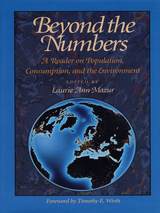
Beyond the Numbers presents a thought-provoking series of essays by leading authorities on issues of population and consumption. The essays both define the poles of debate and explore common ground beyond the polarized rhetoric.
Specific chapters consider each of the broad topics addressed at the International Conference on Population and Development held in September 1994 in Cairo, Egypt. The essays are supplemented by sidebars and short articles featuring more-impassioned voices that highlight issues of interest not fully explored in the overviews.
As well as providing a sense of the difficulties involved in dealing with these issues, the essays make clear that constructive action is possible.
Topics covered include:
- the interrelationships between population, economic growth, consumption, and development
- the history of population and family planning efforts
- gender equality and the empowerment of women
- reproductive rights, reproductive health, family planning, health and mortality
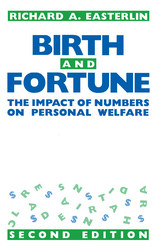
"[Easterlin] has made clear, I think unambiguously, that the baby-boom generation is economically underprivileged merely because of its size. And in showing this, he demonstrates that population size can be as restrictive as a factor as sex, race, or class on equality of opportunity in the U.S."—Jeffrey Madrick, Business Week
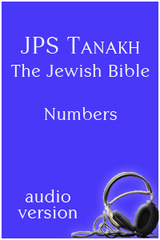

We live in a data-driven world, much of it processed and served up by increasingly complex algorithms, and evaluating its quality requires its own skillset. As a component of information literacy, it's crucial that students learn how to think critically about statistics, data, and related visualizations. Here, Bauder and her fellow contributors show how librarians are helping students to access, interpret, critically assess, manage, handle, and ethically use data. Offering readers a roadmap for effectively teaching data literacy at the undergraduate level, this volume explores such topics as
- the potential for large-scale library/faculty partnerships to incorporate data literacy instruction across the undergraduate curriculum;
- how the principles of the ACRL Framework for Information Literacy for Higher Education can help to situate data literacy within a broader information literacy context;
- a report on the expectations of classroom faculty concerning their students’ data literacy skills;
- various ways that librarians can partner with faculty;
- case studies of two initiatives spearheaded by Purdue University Libraries and University of Houston Libraries that support faculty as they integrate more work with data into their courses;
- Barnard College’s Empirical Reasoning Center, which provides workshops and walk-in consultations to more than a thousand students annually;
- how a one-shot session using the PolicyMap data mapping tool can be used to teach students from many different disciplines;
- diving into quantitative data to determine the truth or falsity of potential “fake news” claims; and
- a for-credit, librarian-taught course on information dissemination and the ethical use of information.

Insects that are the least bit social may gather in modest groups, like the dozen or so sawfly larvae feeding on a pine needle, or they may form huge masses, like a swarm of migratory locusts in Africa or a cloud of mayflies at the edge of a midwestern lake or river. Why these insects get together and what they get out of their associations are questions finely and fully considered in this learned and entertaining look at the group behavior and social lives of a wide array of bugs.
The groups that Gilbert Waldbauer discusses here are not as complex or tightly organized as the better-known societies of termites, wasps, ants, and bees. Some, like the mayflies, come together merely because they emerge from the water in the same place at the same time. But others, like swarms of locusts, are loosely organized, the individual insects congregating to migrate together for distances of hundreds of miles. And yet others form a simple cooperative society, such as the colony of tent caterpillars that weaves a silken tent to house the whole group.
Waldbauer tells us how individuals in these and other insect aggregations communicate (or don't), how they coordinate their efforts, how some congregate the better to mate, how some groups improve the temperature and humidity of their microenvironment, and how others safeguard themselves (or the future of their kind) by amassing in such vast numbers as to confound predators.
As engaging and authoritative as Waldbauer's previous books, Millions of Monarchs, Bunches of Beetles will enlighten and delight those who know their insects well and those who wish to know them better.
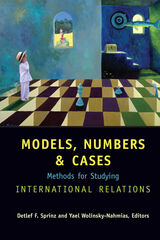
Detlef Sprinz is a Senior Fellow at the Department of Global Change and Social Systems of the Potsdam Institute for Climate Impact Research and teaches on the Faculty of Social Science at the University of Potsdam, Germany.
Yael Wolinsky-Nahmias is Senior Lecturer and Associate Chair in the Department of Political Science at Northwestern University.
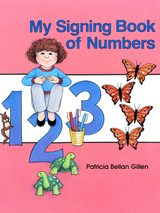
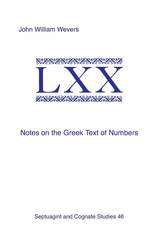
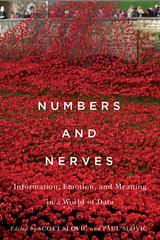
The essays and interviews in Numbers and Nerves explore the quandary of our cognitive responses to quantitative information, while also offering compelling strategies for overcoming insensitivity to the meaning of such information. With contributions by journalists, literary critics, psychologists, naturalists, activists, and others, this book represents a unique convergence of psychological research, discourse analysis, and visual and narrative communication.
At a time of unprecedented access to information, our society is frequently stymied in its efforts to react to the world’s massive problems. Many of these problems are systemic, deeply rooted in seemingly intransigent cultural patterns and lifestyles. In order to sense the significance of these issues and begin to confront them, we must first understand the psychological tendencies that enable and restrict our processing of numerical information.
Numbers and Nerves explores a wide range of psychological phenomena and communication strategies—fast and slow thinking, psychic numbing, pseudoinefficacy, the prominence effect, the asymmetry of trust, contextualized anecdotes, multifaceted mosaics of prose, and experimental digital compositions, among others—and places these in real-world contexts. In the past two decades, cognitive science has increasingly come to understand that we, as a species, think best when we allow numbers and nerves, abstract information and experiential discourse, to work together. This book provides a roadmap to guide that collaboration. It will be invaluable to scholars, educators, professional communicators, and anyone who struggles to grasp the meaning behind the numbers.
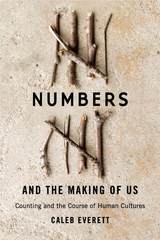
“A fascinating book.”
—James Ryerson, New York Times Book Review
A Smithsonian Best Science Book of the Year
Winner of the PROSE Award for Best Book in Language & Linguistics
Carved into our past and woven into our present, numbers shape our perceptions of the world far more than we think. In this sweeping account of how the invention of numbers sparked a revolution in human thought and culture, Caleb Everett draws on new discoveries in psychology, anthropology, and linguistics to reveal the many things made possible by numbers, from the concept of time to writing, agriculture, and commerce.
Numbers are a tool, like the wheel, developed and refined over millennia. They allow us to grasp quantities precisely, but recent research confirms that they are not innate—and without numbers, we could not fully grasp quantities greater than three. Everett considers the number systems that have developed in different societies as he shares insights from his fascinating work with indigenous Amazonians.
“This is bold, heady stuff… The breadth of research Everett covers is impressive, and allows him to develop a narrative that is both global and compelling… Numbers is eye-opening, even eye-popping.”
—New Scientist
“A powerful and convincing case for Everett’s main thesis: that numbers are neither natural nor innate to humans.”
—Wall Street Journal
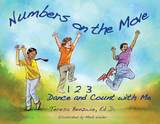
"Move with the numbers, count to the beat. Clap your hands. Tap your feet. Count one two three four, with your Head Shoulders Elbows Hands Arms Hips Knees Feet!"
Early childhood educator Teresa Benzwie believes that dance and movement foster imagination, which is essential to the learning process. Her philosophy—that creative movement helps children gain knowledge through the body—is incorporated in Numbers on the Move, an appealing and entertaining book that urges kids to dance, stretch, and move as they learn to count and play with numbers.
Featuring playful, full-color illustrations, this book offers dynamic activities for children, who learn most readily from experience. For parents and teachers, Benzwie provides additional games and activities to try with children. Kids will develop a concrete awareness of numbers as they connect in deep, direct ways with their own expressive movement.
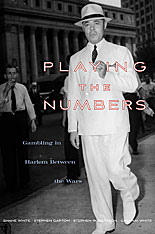
The phrase “Harlem in the 1920s” evokes images of the Harlem Renaissance, or of Marcus Garvey and soapbox orators haranguing crowds about politics and race. Yet the most ubiquitous feature of Harlem life between the world wars was the game of “numbers.” Thousands of wagers, usually of a dime or less, would be placed on a daily number derived from U.S. bank statistics. The rewards of “hitting the number,” a 600-to-1 payoff, tempted the ordinary men and women of the Black Metropolis with the chimera of the good life. Playing the Numbers tells the story of this illegal form of gambling and the central role it played in the lives of African Americans who flooded into Harlem in the wake of World War I.
For a dozen years the “numbers game” was one of America’s rare black-owned businesses, turning over tens of millions of dollars every year. The most successful “bankers” were known as Black Kings and Queens, and they lived royally. Yet the very success of “bankers” like Stephanie St. Clair and Casper Holstein attracted Dutch Schultz, Lucky Luciano, and organized crime to the game. By the late 1930s, most of the profits were being siphoned out of Harlem.
Playing the Numbers reveals a unique dimension of African American culture that made not only Harlem but New York City itself the vibrant and energizing metropolis it was. An interactive website allows readers to locate actors and events on Harlem’s streets.
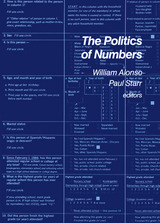

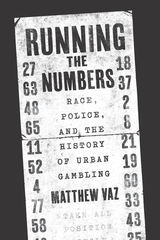
As Vaz highlights, early urban gamblers favored low-stakes games built around combinations of winning numbers. When these games became one of the largest economic engines in nonwhite areas like Harlem and Chicago’s south side, police took notice of the illegal business—and took advantage of new opportunities to benefit from graft and other corrupt practices. Eventually, governments found an unusual solution to the problems of illicit gambling and abusive police tactics: coopting the market through legal state-run lotteries, which could offer larger jackpots than any underground game. By tracing this process and the tensions and conflicts that propelled it, Vaz brilliantly calls attention to the fact that, much like education and housing in twentieth-century America, the gambling economy has also been a form of disputed terrain upon which racial power has been expressed, resisted, and reworked.
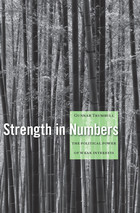
Many consumers feel powerless in the face of big industry’s interests. And the dominant view of economic regulators (influenced by Mancur Olson’s book The Logic of Collective Action, published in 1965) agrees with them. According to this view, diffuse interests like those of consumers are too difficult to organize and too weak to influence public policy, which is determined by the concentrated interests of industrial-strength players. Gunnar Trumbull makes the case that this view represents a misreading of both the historical record and the core logic of interest representation. Weak interests, he reveals, quite often emerge the victors in policy battles.
Based on a cross-national set of empirical case studies focused on the consumer, retail, credit, pharmaceutical, and agricultural sectors, Strength in Numbers develops an alternative model of interest representation. The central challenge in influencing public policy, Trumbull argues, is not organization but legitimation. How do diffuse consumer groups convince legislators that their aims are more legitimate than industry’s? By forging unlikely alliances among the main actors in the process: activists, industry, and regulators. Trumbull explains how these “legitimacy coalitions” form around narratives that tie their agenda to a broader public interest, such as expanded access to goods or protection against harm. Successful legitimizing tactics explain why industry has been less powerful than is commonly thought in shaping agricultural policy in Europe and pharmaceutical policy in the United States. In both instances, weak interests carried the day.
READERS
Browse our collection.
PUBLISHERS
See BiblioVault's publisher services.
STUDENT SERVICES
Files for college accessibility offices.
UChicago Accessibility Resources
home | accessibility | search | about | contact us
BiblioVault ® 2001 - 2024
The University of Chicago Press









